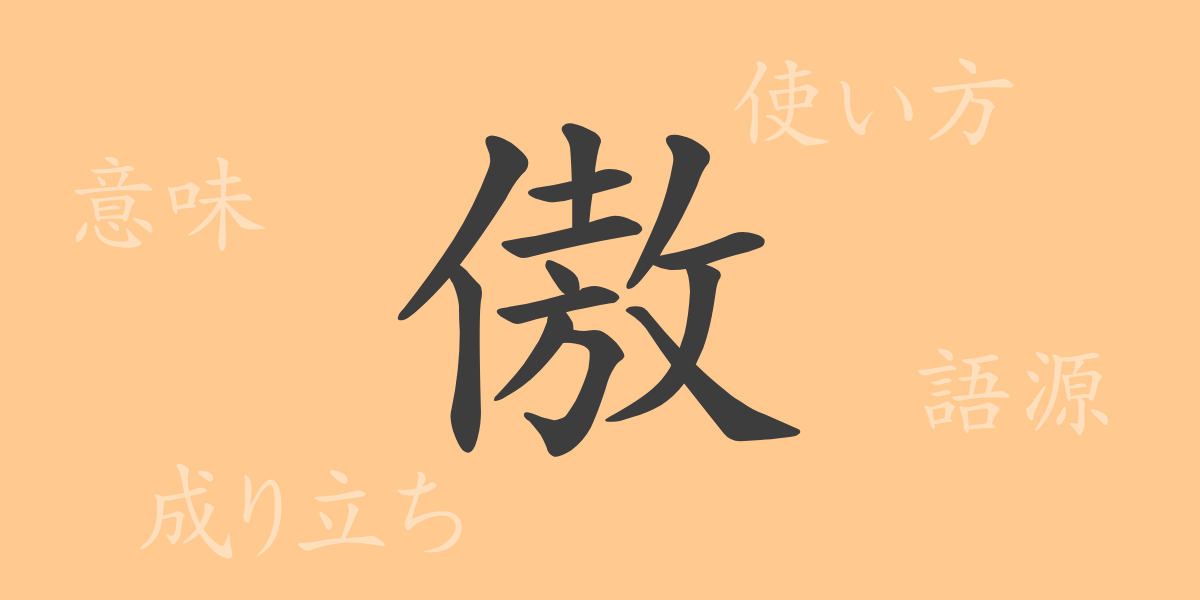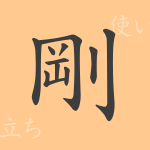The richness of Japanese written culture lies in its many kanji, each with its own unique history and meaning. Today, we delve into the kanji “傲(ごう),” which plays a particularly important role in modern society. This article explores the origins, meanings, uses, and idioms of “傲(ごう),” uncovering its full depth and significance.
Origins of 傲(ごう)
The kanji “傲(ごう)” originated in ancient China, combining the radical for “person” (亻) with the phonetic element “敖.” The character “敖” means “broad” or “wide,” and when combined with the person radical, it conveys the sense of a person behaving broadly, or arrogantly. Over time, this character evolved to represent the concept of spiritual arrogance.
Meanings and Uses of 傲(ごう)
The kanji “傲(ごう)” generally means “arrogant” or “proud.” It describes someone who considers themselves superior to others and displays this attitude. For instance, it can be used in contexts such as “She must correct her arrogant attitude.” In some cases, it can also mean “proud” in a positive sense.
Readings, Stroke Count, and Radical of 傲(ごう)
In Japanese, the kanji “傲(ごう)” has several readings and characteristics:
- Readings: The on’yomi (音読み) is “ごう,” while the kun’yomi (訓読み) includes “おご.る” (to be arrogant) and “あなど.る” (to despise).
- Stroke count: It consists of 13 strokes.
- Radical: The radical is 人(ひと, にんべん), meaning “person.”
Idioms, Phrases, and Proverbs Using 傲(ごう)
Several idioms and phrases feature the kanji “傲(ごう),” often reflecting its connotations of arrogance and pride:
- 傲然(ごうぜん): Exhibiting an attitude full of self-confidence and disdain for others.
- 傲慢(ごうまん): Acting superior to others and looking down on them.
- 自傲(じごう): Being proud of one’s abilities or status and belittling others.
These idioms are frequently used to describe people’s attitudes or psychological states, with “傲慢” being particularly common in everyday conversation and literary works.
Conclusion on 傲(ごう)
The kanji “傲(ごう)” symbolizes confidence, superiority, and sometimes arrogance. Understanding the cultural and historical context behind this character can enrich our expressive abilities. When using “傲(ごう),” it is important to handle its strong connotations appropriately to fully harness the power of language.

























